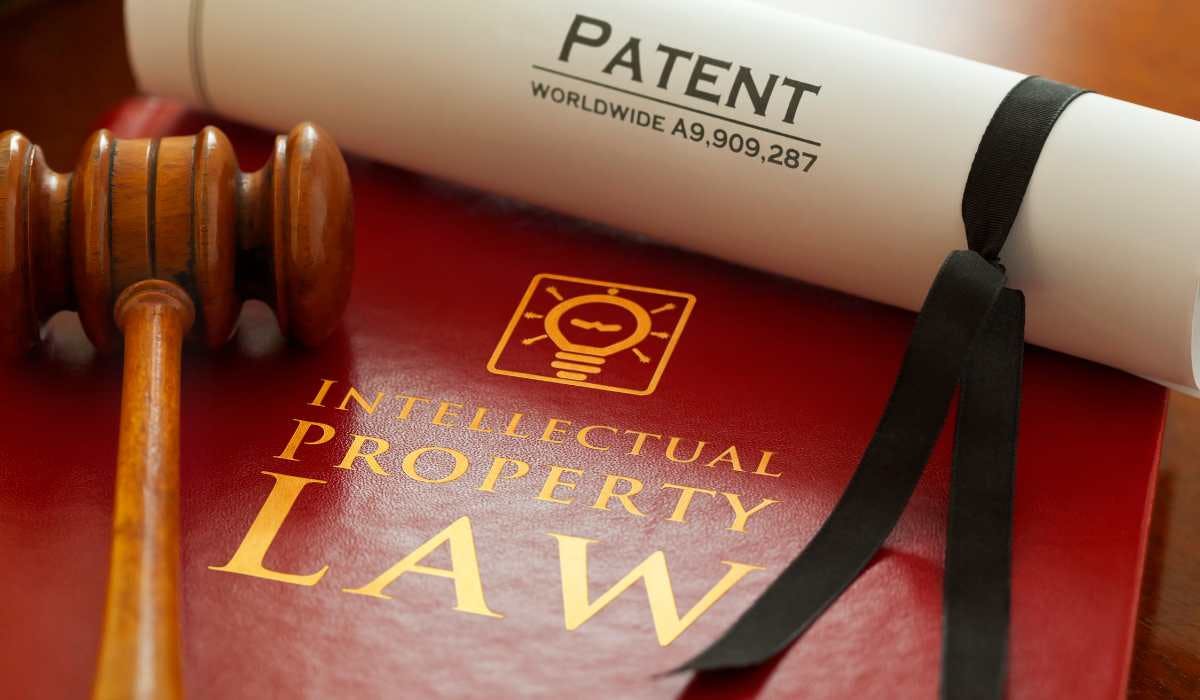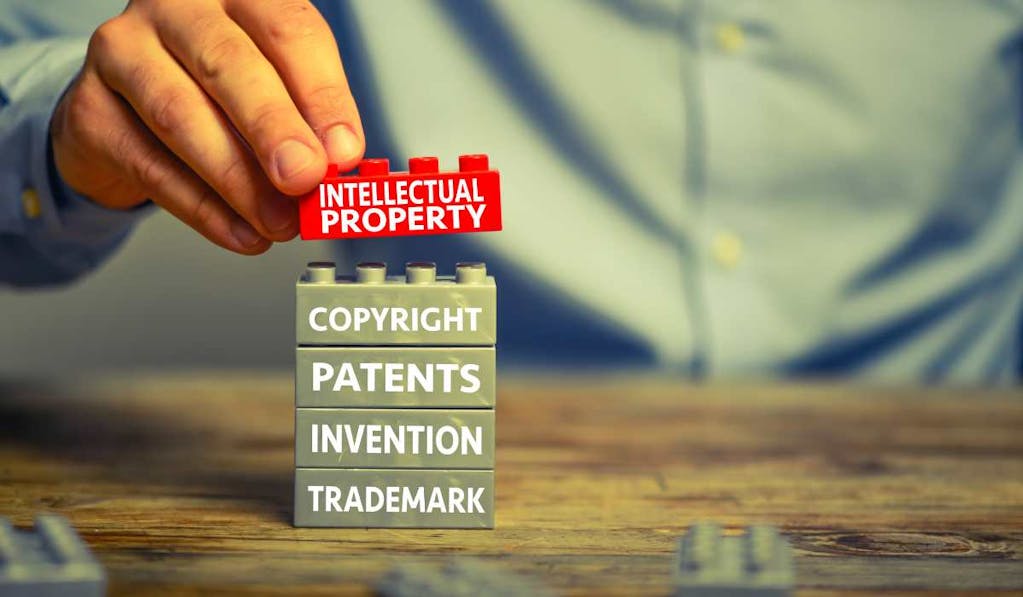Hong Kong's economy thrives on innovation and creativity.
A robust IP regime fosters business confidence and encourages investment in areas like technology and design.
The legal system effectively protects various forms of IP.
Imagine you build a device to simplify cancer diagnosis and start scouting for investors in Hong Kong to market your product. You would be left high and dry if Hong Kong Intellectual Property rights did not exist to stop your competitors from stealing your design!
Simply put, intellectual property protection is essential for a business's growth in an innovation-fuelled economy.
As a leading international trading centre, Hong Kong is home to several industries that need protection for their intellectual property. Hong Kong IP laws protect the IP assets of Hong Kong businesses from other market players acting in bad faith and trying to cash in on someone's work.
Unsure how to navigate the landscape of Hong Kong IP laws? This guide is the perfect place to begin. Learn about IP registration, IP licensing, and the best practices for IP management.
Understanding Intellectual Property Rights in Hong Kong
Intellectual property rights protect intangible assets, everything that is a product of intellect and creativity.
The silhouette of a half-bitten apple on your iPhone, the novels Shakespeare wrote, or even this blog post you are reading are all examples of intellectual property.
Whatever your business creates, such as websites, logos, inventions, and designs for particular processes or marketing collaterals, also qualify as intellectual property.
Legal intellectual property protection stops others from stealing and profiting from your work. The right to protection is automatic for certain types of intellectual property, but for others, you have to apply for protection.
Understanding the Hong Kong Intellectual Property Law can seem complex, especially for those unfamiliar with legal jargon.
While this guide provides a helpful overview, consulting with qualified IP lawyers in Hong Kong is recommended to ensure you receive the most up-to-date legal advice specific to your situation.
Types of Intellectual Property Rights
The most common types of intellectual property rights include:
1. Copyright
It is the right that the owner of any original work holds. The work doesn't have to be of certain literary and artistic works to be under copyright law.
You get a copyright when you create any literary or artistic work. Examples include books, musical compositions, drawings, paintings, films, sound recordings, and software. In general, creative industries benefit the most from copyright protection.
2. Patents
Patents exist to protect inventions. A patent holder has the right to prevent others from using their invention for a limited time.
3. Trademarks
A trademark is any sign distinguishing your product or services from others.
Name, logo, design, shape of your product, sound, or smell can all be registered trademarks.
4. Industrial Designs
Industrial design is a shape or pattern that's important for an industrial process.
The design for creating watches, jewelry, phones, etc., are examples of industrial design.
5. Trade Secrets
A trade secret is any information that holds economic value for a business and provides a competitive edge.
Significance of IP Rights for Businesses and Creators
Intellectual property rights are critical because they act as an incentive to promote innovation, prevent competitors from benefiting from your hard work, boost the valuation of your business and brand, and empower intellectual property owners to control and exploit their creations.
Understanding the Hong Kong Intellectual Property Law
You can protect your intellectual property under the relevant Hong Kong IP laws:
Copyright Ordinance
The ordinance governs copyrights in Hong Kong and grants the following protections to the copyright holders:
- circulate, rent, or lend copies of their work
- communicate their work via an electronic mode
- adapt their work
Term of protection: 50 years after the creator dies.
Patents Ordinance
This ordinance governs the registration and protection of patents. It grants patents to inventions that are:
- new
- demonstrate an inventive step; and
- have industrial application
It also covers inventions which not eligible for patent protection, such as:
- those meant for experimental purposes; or
- public non-commercial use.
Term of protection: 20 years or 8 years, depending on the patent you hold.
Trademarks Ordinance
This ordinance governs the registration and protection of trademarks. To register a trademark in Hong Kong, the sign must:
- distinguish your product from others in the market, and
- be capable of graphical representation.
A registered trademark owner gets the exclusive right to use the trademark. Even though registration is not mandatory, not registering limits your legal protections and makes it harder to prove that you are the legal owner.
There are a few exceptions listed under the ordinance, such as:
- fair use
- using the trademark in a country where it is not registered
Registered Designs Ordinance
The ordinance covers the registration and protection of registered designs.
Only new and original designs receive registration. Registering the design gives you an exclusive right to it during the term of protection.
IP Registration in Hong Kong
Here's an overview of the IP registration regime in Hong Kong:
Intellectual Property Department (IPD) is a statutory body responsible for registering and protecting trademarks, patents, and industrial designs. The Copyright Licensing Bodies Registry is also part of the IPD.
Here's how to register different types of intellectual property in Hong Kong:
Copyright Registration
Copyright does not need any registration in Hong Kong.
As soon as you create any work, the copyright arises automatically.
Patent Registration
Apply to the Patents Registry of the Hong Kong IP Department.
You can register for either:
- standard patent (owner protected for 20 years); or
- short-term patent (owner protected for 8 years).
You can submit the application online or in person, along with a description of the invention, scope, and drawings. Hong Kong also allows the re-registration of Chinese, EU, or UK patents.
Trademark Registration
You can apply to the Trade Marks Registry of the IP Department to register a trademark in Hong Kong. Applications can be online or in person.
The application should include a description of the trademark and the goods/services it covers.
The term of protection is 10 years.
Industrial Design Registration
You can protect your industrial designs by registering them with the Designs Registry of the Intellectual Property Department.
The application should include a description of the design and drawings.
The maximum protection term is 20 years.
Costs and Duration of IP Registration
Predicting the exact timeline for IP registration in Hong Kong is difficult as it depends on a case-to-case basis.
Here's an indicative timeline and costs:
Patents
Cost:
- Standard patent – HKD 345 for an online application and HKD 480 for a paper application.
- Short-term patent – HKD 545 for an online application and HKD 755 for a paper application
- An additional HKD 68 is payable as advertisement fees for standard and short-term patents.
Timeline:
6 to 9 months if there are no objections or deficiencies in the application
Trademarks
Cost:
- HKD 2000 for the application fee and application form.
- HKD 1000 for each additional trademark class in the application.
Timeline:
It can take up to six months for registered trademarks if there are no deficiencies or oppositions.
Otherwise, it can take up to 12 months.
Industrial Designs
Cost:
The application fee to register a single design is HKD 785 plus HKD 155 as an advertisement fee.
Fees go up if you wish to register more than one design.
Timeline:
Between 2 to 6 months
IP Licensing and Commercialization in Hong Kong
Commercialization and licensing IP is critical for a knowledge-based economy like Hong Kong. Here's how you can do it:
IP Licensing Agreements
You can execute a licensing agreement to allow another person to use your IP in exchange for royalties.
IP licensing agreements in Hong Kong are widely used for technology transfer. Here's what you can license under an agreement:
- Patents
- Copyright
- Trademarks
- Product designs
You can grant:
- an exclusive license, which means only the licensee can use the IP; or
- a non-exclusive license so that you can continue to use your IP and license other users.
Franchising and Technology Transfer
Franchising refers to a specific licensing arrangement typically used for trademarks and trade secrets. It is also a vehicle for technology transfer.
Using a franchising agreement, you allow other businesses to distribute your products or use your trade name to run their business in lieu of franchise/marketing fees.
For example, Burger King US executes franchising agreements that allow its franchisors to set up Burger King outlets in Hong Kong.
Revenue Generation
You can monetize your IP assets to generate revenue for the business. Here are some of the common methods:
- Receive royalty as compensation for licensing your intellectual property such as patents, trademarks and copyrights. This practice is particularly common in the pharma and biotech sectors.
- Use IP rights as collateral to borrow loans
- Tie up with another business and pool relevant patents for a common investor

Protecting Intellectual Property Rights in Hong Kong
Here's an overview of the enforcement options available in Hong Kong to stop IP infringement:
IP Enforcement Mechanisms
Hong Kong IP laws allow civil and criminal enforcement.
Civil Enforcement
The first step of civil enforcement involves writing to the infringer and ordering them to stop the activity.
If the infringer doesn't stop, you can approach the trial court or high court to enforce your rights. You can approach the Court of Appeal to appeal against the high court's judgment.
Typically, an enforcement action takes 15 to 30 months.
Criminal Enforcement
The Hong Kong Customs and Excise Department (C&E) initiates criminal action against copyright and trademark infringements in the region.
IP owners must prove they own the relevant intellectual property and provide evidence of its registration and infringement in Hong Kong.
Preventing and Addressing Infringement
IP infringement impacts your business in several ways:
- dilutes your reputation
- minimizes innovation
- results in revenue loss
Taking proactive steps to prevent infringement protects your work and reduces the cost of pursuing legal action.
Legal Remedies and Dispute Resolution
Preferred forums for initiating civil action against IP infringement include district and high courts.
Usually, courts order one of the following remedies:
- direct the offender to pay monetary compensation
- pass an injunction that directs the infringer to stop
- direct the infringer to pay you the profits earned by infringing your IP
You can also resolve IP disputes through arbitration and mediation.
Here's a break up of penalties for various IP infringements:
- copyright piracy/infringement: jail term of up to four years and a maximum fine of HKD 50,000 for every act of infringement.
- trademark infringement: a fine of up to HKD 500,000 and imprisonment of up to five years.
- infringing registered design: imprisonment of up to five years and payment of damages.
- patent infringement: imprisonment up to three years and payment of damages.
Trade Secrets and Confidential Information
Any information that gives your business a competitive edge is valuable and requires protection. The umbrella term ‘trade secret' covers all such information.
Definition of Trade Secrets
Any confidential information of a business known to a limited number of people and holding commercial value counts as a trade secret.
The recipes for KFC chicken and Krispy Kreme doughnuts are some of the world's most popular trade secrets.
Other examples of trade secrets include:
- marketing and pricing plans
- list of customers
- manufacturing and design processes
Protection Strategies for Trade Secrets
The common law of confidence protects trade secrets under the intellectual property law.
You can impose an obligation on another person to keep the information confidential. The owner of the trade secret has the following remedies for any breach of confidence:
- injunction
- damages
- delivery of the document/material containing the trade secret
Non-disclosure Agreements and Confidentiality Clauses
Executing a non-disclosure agreement is a strong preventive measure to protect the misappropriation of your trade secrets.
You can execute an NDA with business partners and employees to prevent them from sharing any confidential information about your company.
IP Management Best Practices
A solid plan for managing and protecting your IP assets can go a long way to boost the potential of your business.
Here are some best practices to consider:
Developing an IP Strategy
IP strategies are unnecessary for small companies with few employees on the roll.
But if you are running a large organization, create a well-drafted intellectual property strategy that focuses on:
- creating intellectual property assets and identifying specific protection needed;
- identifying any third parties who may be involved with the creation of IP assets;
- reducing unnecessary costs; and
- commercializing IP assets
Monitoring and Maintaining IP Rights
Maintaining and monitoring intellectual property rights helps you to align the IP strategy with the business's overall goals.
In particular, you should aim toward:
- establishing dedicated IP management teams responsible for registering and maintaining IP rights;
- increasing awareness about intellectual property rights and company policy; and
- negotiating and administering IP agreements with relevant third parties
Valuation and IP Audits
Conduct regular IP audits to unlock the true value of your IP assets.
Audits can also help you uncover loopholes in licensing agreements, assignment agreements, tech transfer agreements, etc., to prevent your rights from getting compromised.
IP Portfolio Management
Like your investment portfolio, you must manage your intellectual property assets smartly.
There are different aspects of IP portfolio management, such as:
- auditing your existing IP assets,
- identifying new assets that need IP protection, and
- minimizing the risk of IP infringement, including any secondary infringement.
You can also make sure that your IP policies cover all products and services you offer to provide a competitive advantage in the market.
Conclusion
Other than copyright, you need to approach relevant registries of IPD to register your intellectual property right and receive legal protection. The Hong Kong intellectual property law also has a strong enforcement mechanism to address infringement issues.
Protecting your IP rights can help you get an edge over your competitors, skyrocket the value of your business, and open floodgates of investment. And being well-versed in Hong Kong's IP landscape means you know which authority to approach if you need IP registration or wish to initiate enforcement action for infringement.
Are you having difficulty trusting someone to establish your business in Hong Kong while you are on the other end of the world? Need someone with a wealth of experience setting up and running a business in Hong Kong, including compliance with the Hong Kong intellectual property law?
Get in touch with Air Corporate today.
FAQs
There is no provision to register a copyright in Hong Kong. But you can get proof of copyright in Hong Kong by applying for an affidavit or declaration under the Copyright Ordinance.
No. Chinese patents only offer protections in PRC. Inventors in Hong Kong must file Hong Kong Standard Patent Application to receive patent protection in Hong Kong.
You can file an application online or in person with the Hong Kong government’s Trade Marks Registry, Intellectual Property Department.
World Intellectual Property Organization (WIPO) is the international organization overseeing IP protection, and the WIPO Intellectual Property Handbook is a valuable resource for anyone seeking a deep dive into the world of IP on a global scale.
Trademark infringement occurs when someone uses a trademark that is confusingly similar to yours in a way that's likely to mislead consumers about the source or origin of the goods or services.



